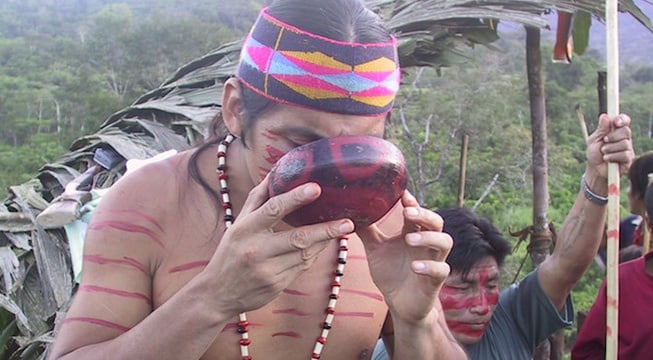
For thousands of years, the Achuar of Ecuador have kept their culture alive through community traditions and rituals. Because they still live intimately with the land, their rituals reflect a deep connection to the natural world.
Dream Sharing
Each morning, the families wake before sunrise to share their dreams in a sacred time called ‘hora de wayusa.’ As early as 3 or 4 am, Achuar people arise and share a tea called wayusa, made from a small shade-grown tree that is cultivated in most family gardens. Because the wayusa is caffeinated, it acts as a mild stimulant as the families recount their dreams.
The most important aspect of the ‘hora de wayusa’ is the communal interpretation of the dreams. The elders of the family offer their interpretation of significant symbols or events of each person’s dream, individuals can offer their own insight. Dreams might also offer warnings, foretell an event, or help make sense of a current challenge in the community.
For Achuar men, dreams offer vital insight into how successful that day’s hunting will be. In this way, hunters make a connection with the animals that they will hunt that day. It is believed that all of life is sacred and should only be taken if needed. When the Achuar interpret dreams of hunting, it is a way of giving meaning and respect to the animal’s life they will be taking.
After the dream telling is finished, families will drink chicha. Since it is made from the staple food source in Achuar diet—yucca—chicha is considered a sacred source of life. As such, it is a communally meaningful way to end the dream-telling and begin the day.
The Garden As a Sacred Space
After the families share chicha, and the day is ready to begin, Achuar women go to the garden. Each family has its own large garden, called a chakra, which is considered a sacred and powerful space.
According to the Achuar worldview, a divine aspect of Mother Earth lives in the gardens, and it is women’s responsibility to carefully cultivate this space in order to keep their communities healthy. As they work each morning, they sing songs in offering to Pachamama and make sure the garden is clean and well-kept.
When Achuar women go into labor, it is custom that they go alone into their gardens and deliver the baby in solitude. It is believed that by not screaming or making noise, the mother is showing her strength and passing good luck and health on to her child. This also makes birth a sacred and solemn event.
For cultures everywhere, rituals are an important way to create community bonds and connect to natural surroundings.
